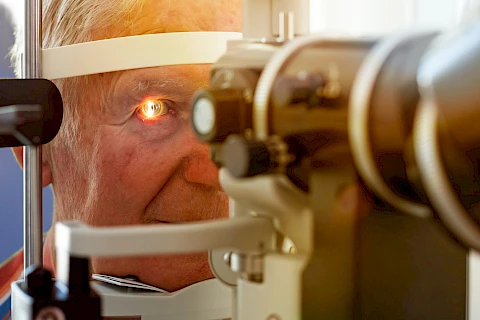
Diabetic retinopathy is a serious eye condition that can significantly impact seniors, particularly those managing diabetes. As caregivers, it is important to understand this condition and assist seniors in maintaining their eye health. Remember that early detection and proper management can make a world of difference.
The Basics of Diabetic Retinopathy
Diabetic retinopathy is a diabetes complication that affects the eyes. High blood sugar levels can damage the small blood vessels in the retina, leading to vision problems and, eventually, blindness if untreated. Diabetes can significantly affect seniors' eye health, making it important for caregivers to be aware of this condition.
Risk Factors for Seniors
Seniors with diabetes face additional risk factors when it comes to managing their overall health. Age-related challenges make it harder for them to manage diabetes effectively, increasing the likelihood of developing diabetic retinopathy. Other factors, such as high blood pressure and elevated cholesterol levels, also contribute to this risk. Understanding these factors can help caregivers take proactive measures in supporting senior eye health.
Stages of Diabetic Retinopathy
Diabetic retinopathy progresses through several stages, each with its own set of symptoms. In the early stages, small blood vessels leak fluid or blood, causing minimal or no symptoms. However, as the disease progresses to moderate and severe stages, vision may become blurry, or new blood vessels may form, leading to bleeding and retinal damage. Recognizing these symptoms is important for early intervention and treatment.
The Importance of Regular Eye Exams
Routine eye exams are vital for detecting diabetic retinopathy early and slowing its progression. Regular check-ups can catch problems before significant damage occurs, preserving seniors' vision and quality of life. It is generally recommended that seniors with diabetes have an eye exam at least once a year. Caregivers should encourage seniors to adhere to this schedule to ensure their eye health is monitored consistently.
Tips for Caregivers
Caregivers can take several steps to support seniors in managing diabetic retinopathy:
- Encourage and facilitate regular eye appointments
- Assist with medication management
- Help implement lifestyle changes, such as maintaining a healthy diet and staying active
- Communicate effectively with healthcare providers
- Provide tools that aid vision, like magnifying glasses or better lighting at home
- Promote independence while ensuring safety
Daily routines can greatly impact eye health. Encourage seniors to follow their doctor's recommendations, such as wearing prescribed glasses or using eye drops. Providing tools that aid vision, like magnifying glasses or better lighting at home, can make a significant difference. Promoting independence while ensuring safety is important.
Let Us Help Seniors Manage Diabetes
As caregivers, your involvement in managing a senior's eye health is pivotal to preventing and slowing the progression of diabetic retinopathy. You can make a significant difference by understanding the condition, recognizing risk factors, and ensuring seniors attend regular eye exams.
Remember, you're not alone in this journey. Senior Helpers Frisco is here to support you and your loved ones in Frisco, Lewisville, Little Elm, Lake Dallas, and Aubrey. Contact us to learn more about our home care services and how we can improve the quality of life for seniors with various health conditions and challenges.